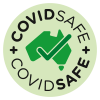Program
It takes two to talk
It takes two to talk
Based on the HANEN Program, Speech On Eyre offers parent workshops designed for children at a developmental age of 2-4 years. This program will assist parents and carers to help facilitate their child’s speech, language, play, and communication skills in their home and community.
The principle aim of a Hanen program is to help families support their child’s communication goals during the everyday situations that are already happening in the child’s life. In this way, parents aren’t left feeling they have to ‘carve out’ extra time in their day to “do Hanen strategies”.
Researched Principles on which the It Takes Two to Talk® Program is Based:
01.
Putting the family front and centre
02.
Therapy is part of everyday family life
03.
Learning to communicate takes place within parent-child interactions
The It Takes Two to Talk Program is based on the view that it is the interaction between adult and child that is the catalyst for the child’s language learning.
This theory is based on the belief that children’s language learning is fostered when the adult:
- Is very responsive to the child’s communication efforts; and
- Simplifies and fine-tunes what she says to the child so that the child can understand and learn from it.
04.
Being responsive to the child is the key
The It Takes Two to Talk Program teaches parents to be responsive to their child. Being responsive means:
- Responding promptly (often within 1-2 seconds of a child doing or saying something)
- Responding positively – responding in a way that shows the child the parent is really interested in what she or he is saying
- Sticking with what the child is “talking” about and not trying to get him interested in something else (e.g., if the child is showing the parent how he can drive his toy car along the kitchen floor, the parent then talks about what he is doing with the car, not the colour of the car or about the toy train)
Studies have shown that, when parents respond sensitively to their children, the children demonstrate:
- Greater understanding of language at one year
- More advanced speech and vocabulary development and understanding of language in the second and third year of life
- Larger receptive vocabulary (understanding of words) at age 12
05.
In Summary
Decision Making & Consent
Consent is the permission given by a person or substitute decision maker concerning decisions that affect a person’s life. Consent requires a person to be informed about what they are giving consent to or for. Consent requires an understanding of the decision at hand which is referred to as capacity. When a person has the capacity to make a particular decision, they can:
• understand the facts and choices involved
• weigh up the consequences, and
• communicate the decision.
...
Some people may need support to exercise their capacity to make decisions that affect them, and to increase their decision-making skills and confidence. Participants are always presumed to have the capacity to make their own decisions and give consent when it is required, unless there is evidence otherwise. We don’t assume a person lacks capacity because of their age, appearance, disability, behaviour, language skills or any other condition or characteristic.

